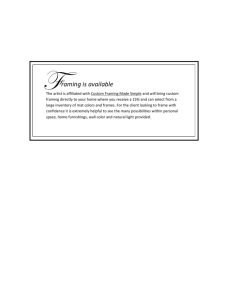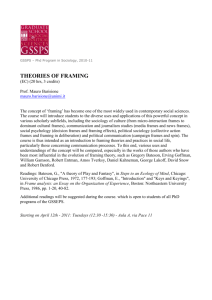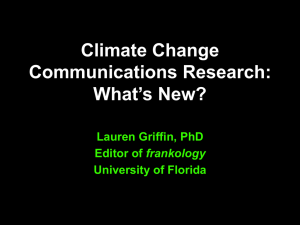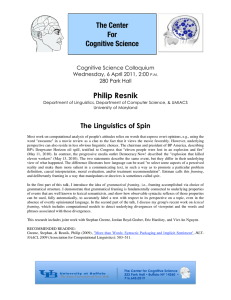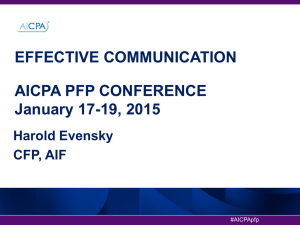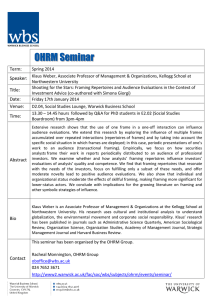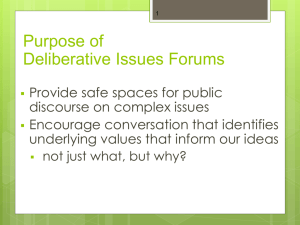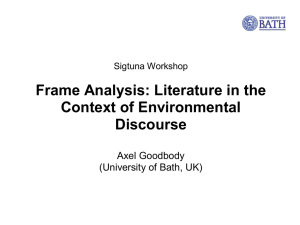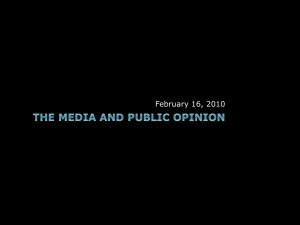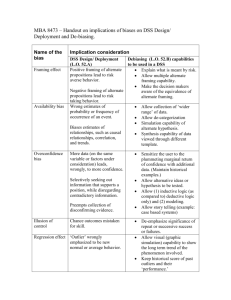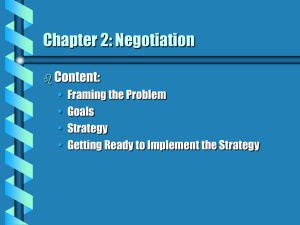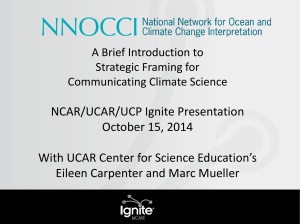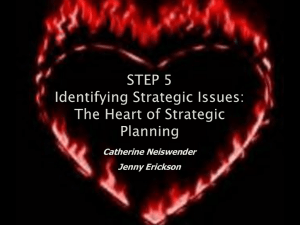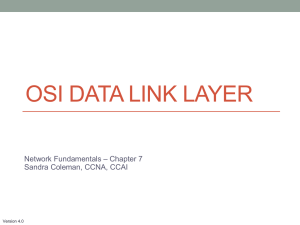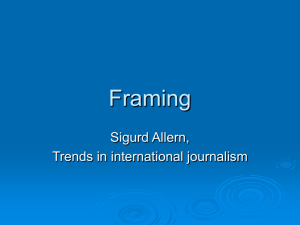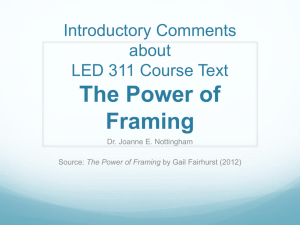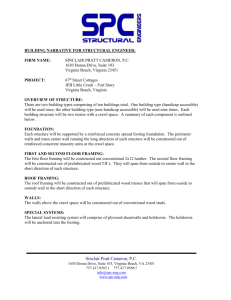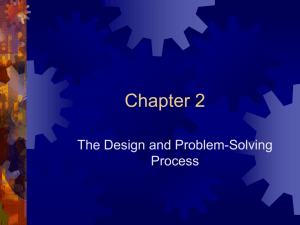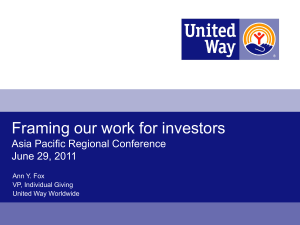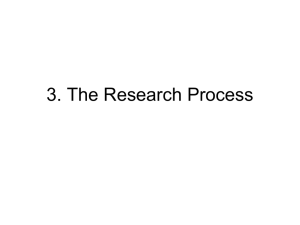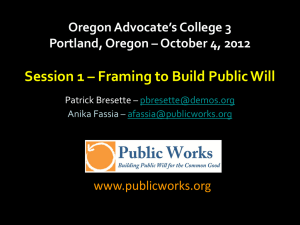Joep Cornelissen
advertisement
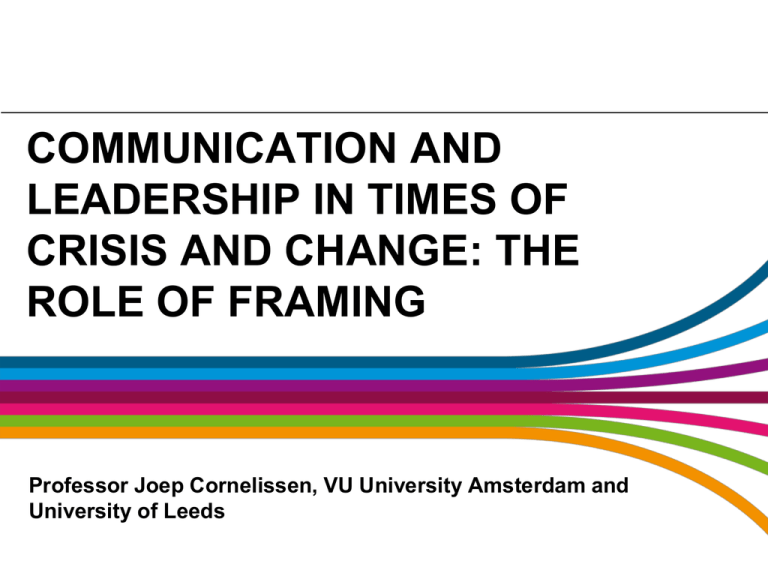
COMMUNICATION AND LEADERSHIP IN TIMES OF CRISIS AND CHANGE: THE ROLE OF FRAMING Professor Joep Cornelissen, VU University Amsterdam and University of Leeds In a nutshell… Times of unprecedented uncertainty, dynamism and complexity (e.g., climate change, financial instability, terrorism) → leadership in terms of providing direction and a moral stance → role of framing crucial: how a person frames a situation determines how they experience and understand it, what inferences they make, and what moral implications are granted → role of communicators as lateral thinkers and wordsmiths who can lead in the (re)framing of organizational and societal issues Essentials of Framing → A frame as a structured set of background assumptions, typically invoked by words and whose structure is rooted in some motivating cultural context. – The use of words, as acts of framing, is defined with respect to a background conceptual frame and performs a categorization that takes the frame for granted – Frames are analogue representations that impart organizing structure and license inferences → a crucial way of facilitating understanding of novel, dynamic and complex issues or problems (such as a strategic change or innovations) involves using analogical or metaphorical frames that can create or expand categories of understanding. → analogies or metaphors also bring familiarity and license certain inferences (e.g., war on terror, credit crunch) Operation to chase 21/7 bombers Description of the Case • Assistant Commissioner Andy Hayman was in charge of the investigation and around 10:30 advised the Police Commissioner, Sir Ian Blair, that someone had been shot dead at the station and that it was believed that he was one of the bombers. • In a first meeting with the press, Commissioner Blair reiterated that the ‘shooting is directly linked to the ongoing and expanding antiterrorist operation. … I understand the man was challenged and refused to obey’. • At around 16:30 in the afternoon, Andy Hayman briefed a gathering of journalists that the deceased was not involved in the previous day’s attempted bomb attacks. • “The man shot at Stockwell station is still subject to formal identification and it is not yet clear whether he is one of the four people we are seeking to identify and whose pictures have been released today. It therefore remains extremely important that members of the public continue to assist police in relation to all four pictures. This death, like all deaths related to police operations, is obviously a matter of deep regret. Nevertheless the man who was shot was under police observation because he had emerged from a house that was itself under observation because it was linked to the investigation of yesterday’s incidents. He was then followed by surveillance officers to the station. His clothing and his behaviour at the station added to their suspicions. While the counter terrorist investigation will obviously take pre-eminence, the investigation into the circumstances that led to his death is being pursued and will be subject to scrutiny through the IPCC in due course”. III. Example from TV Series The Wire Radical change of setting up quarantine free zones for drug trafficking in the District → involves a disruption of the status quo → triggers uncertainty, controversy and confusion with internal and external stakeholder groups Framing of the change to stakeholders in an attempt to gain their acceptance and support Major Colvin uses initial analogy with prohibition period, but switches to metaphorical idioms Implications Role of communicators as organisational conscience, boundary spanners and strategic messengers → framing experts How organizational and societal issues are made sense of depends fundamentally on frames Reclaim the subject and craft of framing from a communication and processual perspective (as opposed to more narrow sociological, cognitive or economic approaches)
